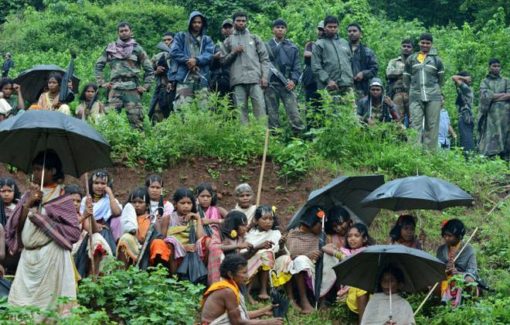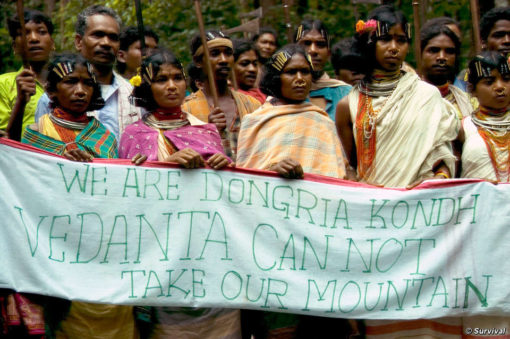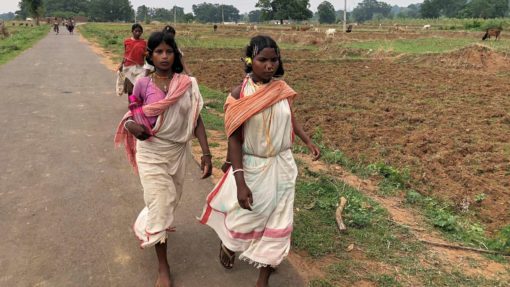
Over five activists from Odisha’s Lanjigarh in the Niyamgiri region are currently in jail. One of which is Dadi Kadraka, who was picked up from the Muniguda market without any notice in a case dating back to a decade. Like Kadarka, on the morning of July 24, Niyamgiri Suraksha Samiti (NSS) activists Jilu Majhi, Tunguru Majhi, Range Majhi, Salpu Majhi and Patra Majhi from the villages of Palberi and Kunakadu of Kalahandi district, Odisha, were arrested.
The arrests come in the backdrop of increasing anxieties among the particularly vulnerable tribal group (PVTG) Dongria Kondh which has tried all forms and ways of safeguarding their most revered mountain god, Niyamraja. In a bid to continue their resistance, the tribals have been struggling against the mining projects in the region by corporate giant- Vedanta. The firm established an aluminium refinery in 2006 in Lanjigarh, despite the non-consent of villagers in and around the area.

The residents of the region are also accusing the firm of forcefully acquiring over ten acres of village common land without the necessary clearances. According to their claims, not only did the companies reportedly ‘ignore community concerns’ but in connivance with the state and Union government, blatantly ‘breached’ state and national regulatory frameworks and overlooked adherence to international human rights standards displacing over a hundred families. The villagers were also promised job opportunities at the plant and free education for their children. However, the project in turn has now become a symbol of tribal resistance and brutal crackdown by the state.
In March this year, two persons were killed and 50 injured at Vedanta’s aluminium refinery. The deaths happened after Odisha Industrial Security Force (OISF) personnel mercilessly used batons on the displaced tribals who were protesting and demanding jobs. One of the persons who was killed following the protests was Ambedkarite activist Dani Batra, who was reportedly beaten to death by security forces. Kadarka’s family is also fearing for his life as this is not the first time he has been hounded by the state police. In 2018 too, he was tortured in jail for over four days, leading to grave injuries on his body. A week before the violence at the Lanjigarh refinery, one of the founder members of Niyamgiri Suraksha Samiti (NSS), Lingaraj Azad was arrested and later released on bail. Lingaraj was arrested for protesting against the forceful construction of CRPF camps in various parts of the Niyamgiri hills.
Human rights groups and activists are condemning the arrests and saying that the charges which the activists are booked under, including the Arms Act and allegations of links to Maoists, are baseless. Speaking to NewsClick, Sidddharth Nayak, the lawyer representing Dadhi Kardarka, said, “The tribals of the Dongria tribes are being put behind bars, for cases dating back to over a decade. There are over five people who have been arrested, but this is just the tip of the iceberg. The people were arrested for blocking the roads leading to the aluminium plant and resisting its functioning. They are charged under vandalism and arson. The cases are old but the police did not give any notices in the old cases, and is now targeting leaders and activists as the movement to block construction of roads around the aluminium plant is gaining momentum.”
He added, “Naveen Patnaik’s regime over four consecutive terms has brought about the worst injustices against the adivasi people of Odisha.”
The resistance of the adivasis in the state has been ongoing since 1997, when Odisha Government signed a Memorandum of Understanding (MoU) with Sterlite Industries India Ltd. and Vedanta Aluminium, subsidiaries of Vedanta Resources. The company acquired land in the name of development in the region. However, those who have lost land have also accused the company authorities of adopting anti-local policies in all the appointments in their projects. Rights groups have also reported violations of the rights to water, food, health, work, and an adequate standard of living.
In a major win for the movement in 2013, a Supreme Court judgement upheld the rights of forest-dwelling adivasi and other forest-dwelling communities over their deity Niyamraja and upheld the power of the local gram sabha as supreme. However, despite the sabhas rejecting the mining proposals, the expansion by Vedanta continues unabated in the region. Currently, the case against the activists is pending before the lower court and the hearing is scheduled to take place on August 27.




